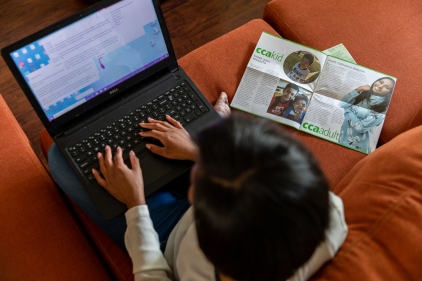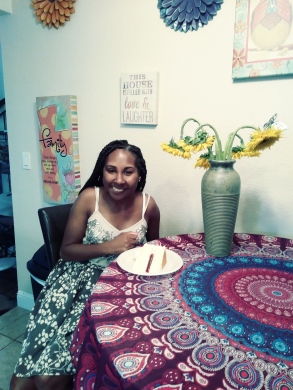I’ve read about my syndrome many times online, but there was nothing like being in a room full of people who looked exactly like me; this feeling has been indescribable. My take away from the retreat this year is really this one sentiment– which is “some things can’t be taught but have to be experienced.”
For most of my life I’ve always felt a void feeling like I never fit in or belong. For a long time I looked for that acceptance in other places. And even though I’ve read about acceptance and kindness, in different books I could never really understand what that truly meant until I entered a room filled with acceptance and kindness. CCA is different in that way. They take the idea of acceptance and kindness and translate it into a actual experience. Experiencing first hand the genuine love , kindness and acceptance at the CCA retreat has healed my heart more than any reconstructive surgery can.
You see sometimes people can misconstrue, thinking that if we just looked normal than all of our problems would go away; but that is so far from the truth. On behalf of all the cranio families out there, I can confidently say that we’re not always looking for perfection ( the correction of our faces) but we are looking for acceptance. To be honest, I would proudly walk around with the same crooked face, no ear and smile as long as I knew that there were others that loved and supported me despite my facial difference.
My thoughts may seem a little sporadic but that’s love sometimes; it can be a little unconventional and spontaneous. At this year retreat I experienced genuine love. It was like God was showing me through CCA his love for my difference and disability. It’s so important for spaces to be created for children and even adults with facial difference and even disabilities because it exposes each child to an environment that celebrates who they are.


 I can tell you about how to be a patient like I can tell you what the back of my hand looks like; and for a long time I took extra pride in being called a patient. It was sort of like wearing a badge of honor letting doctors and my fellow patients know “ I know what you’ve been through.” However, there was a slight change in my patient title when I went from being a child patient to an adult patient. All of a sudden I found myself having to balance the roles between not only being a patient but an advocate as well.
I can tell you about how to be a patient like I can tell you what the back of my hand looks like; and for a long time I took extra pride in being called a patient. It was sort of like wearing a badge of honor letting doctors and my fellow patients know “ I know what you’ve been through.” However, there was a slight change in my patient title when I went from being a child patient to an adult patient. All of a sudden I found myself having to balance the roles between not only being a patient but an advocate as well. 








 I think” and at that time I didn’t take those words to be true because the pain was so real and it seemed as if the burden of my difference was heavier than what I was even willing to bare. However, looking back in the midst of another battle… I get it now. Like a runner running a race my endurance is kicking in and I remember that I have the God given gift of perseverance. So today just as that special someone told me I was much stronger than I think, I want to encourage you that so are you! You are not strong because you overcame but you are strong because you choose to win!
I think” and at that time I didn’t take those words to be true because the pain was so real and it seemed as if the burden of my difference was heavier than what I was even willing to bare. However, looking back in the midst of another battle… I get it now. Like a runner running a race my endurance is kicking in and I remember that I have the God given gift of perseverance. So today just as that special someone told me I was much stronger than I think, I want to encourage you that so are you! You are not strong because you overcame but you are strong because you choose to win!